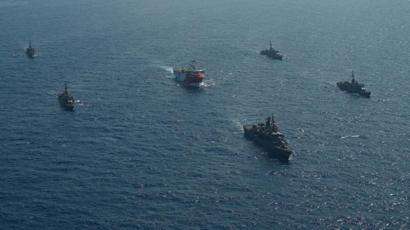The European Union (EU) still adheres to its dual approach in dealing with Turkish activities in the Eastern Mediterranean, which is represented in openness to dialogue with Ankara on the one hand and adopting proper measures to protect European interests on the other hand.
This is what was expressed by the spokesman for the EU's High Representative for Security and Foreign Policy, Josep Borrell, who confirmed that Brussels rejects the negative Turkish actions in the waters of the Eastern Mediterranean and calls for engaging in a constructive and effective dialogue with Ankara.
The EU spokesman Peter Stano Stona acknowledged that the European calls for calm and dialogue have not met with any response from the Turks who adopt their provocative practices in the eastern Mediterranean. He said: “We want to confirm that the Turkish measures have specific and clear effects on relations between Brussels and Ankara,” according to his words.
Stano hinted that the foreign ministers of European Union member states are discussing a massive range of measures that could be taken if Turkey continues its "worrying" approach, without providing clear details.
The EU and Turkey
The spokesman did not rule out responding to the Greek authorities ’request to conduct an extraordinary meeting of foreign ministers to respond to the Turkish threats in the eastern Mediterranean. He explained that the previously scheduled informal meeting in Berlin on August 27 would be an appropriate opportunity to discuss the same matter.
Stano's statements follow a move by Greece to place its armed forces on high alert on Monday after Turkey's seismic exploration ship “Oruç Reis” arrived in its area of operation in a bloc territorially disputed with Greece, a move which Athens described as a threat to peace and stability in the region.

Ankara continues to explore the maritime areas that Cyprus and Greece consider their own and have recently resorted to military drills off the Greek coast, which have deepened the European crisis.












